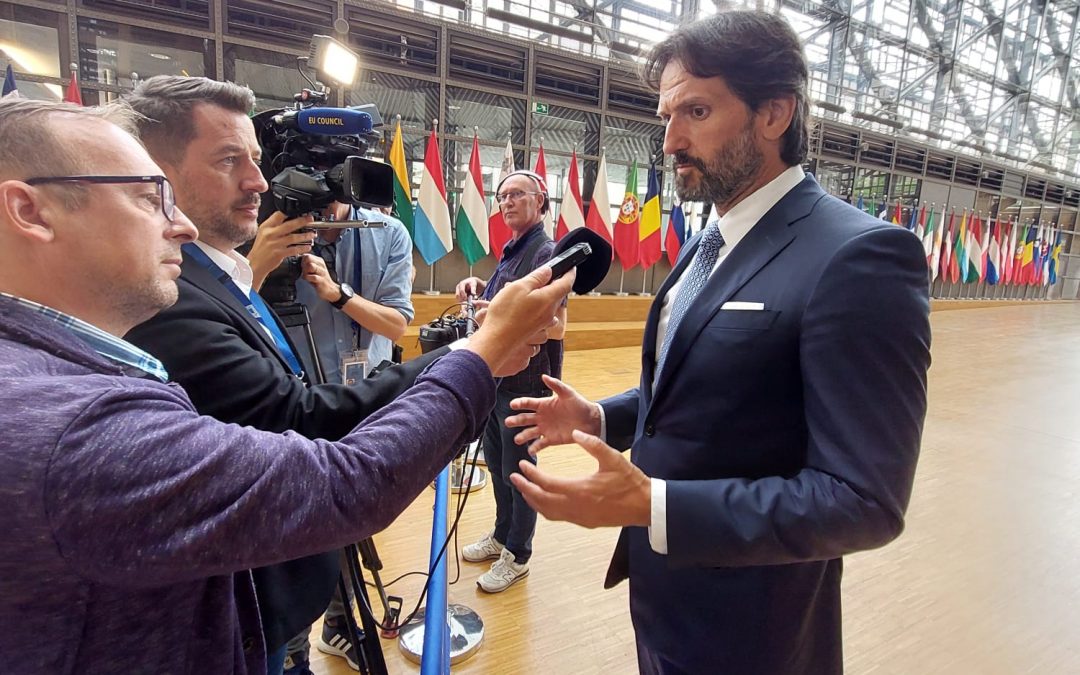Brussels – The European Commission is also beginning to talk about the fact that the war in Ukraine has no military solution. This was stated on Friday by Slovak Defence Minister Robert Kaliňák (Smer) after an informal meeting of EU defense ministers in Brussels, reported TASR’s Brussels correspondent.
Kaliňák expressed disappointment that this meeting did not take place in Budapest, as planned under the Hungarian presidency of the EU Council. He considers such “punishment” by Brussels as “childish” and unfair. He also questioned how the EU plans to respond to the latest information about the attack on the Nord Stream 2 pipeline.
“We should have the courage to ask, what kind of information is this about Nord Stream? It’s European infrastructure. I don’t know that anyone gave the green light to tolerate attacks on European energy infrastructure. How will we solve it? Or are we currently postponing this just because we are in a conflict with Russia, which attacked Ukraine? It’s strange and sets precedents for the future that are unacceptable,” he described the situation.
He clarified that he is mainly surprised that the EU was “completely silent” and did not react to the information from Germany about a possible Ukrainian link in connection with the pipeline explosion.
Kaliňák added that he also openly discussed other problems and the behavior of the Ukrainian side, particularly related to the blocking of oil supplies or some sanctions that could impact the EU. This must be prevented, according to him.
“If we are to help from our resources, their measures cannot affect our economic interests,” he explained.
The minister emphasized that it was openly discussed in Brussels that some assistance to Ukraine is not always effective. The head of EU diplomacy, Josep Borrell, hinted at the possibility of increasing the current number of Ukrainian soldiers, 60,000, who receive military training in the Union. Kaliňák does not see a perspective in it and clarified that Slovakia is focusing on the humanitarian aspect of the training, on demining, possibly on training medical personnel.
He also pointed out the problem that “not the same number of Ukrainian participants finish the training as start it,” which means that the efficiency of this effort is lost.
At the end of the interview, Kaliňák stated that if Prime Minister Robert Fico said a year ago that the war in Ukraine has no military solution and his rhetoric was labeled as pro-Russian, today the European Commission, specifically Borrell, is speaking in a similar spirit, considering a military solution “problematic,” which fills him with optimism that the EU will eventually reach a peaceful solution.
“Today, it is also the stance of the European Commission that yes, it has no military solution. Mistakes were made in not starting peace negotiations last year, and today we are not getting closer to it. Therefore, the pressure for negotiations must be conducted on both sides, Russian and Ukrainian. To start bringing these views closer. The operation in Kursk seems that we are moving further away from the negotiating table,” added Kaliňák. (August 30)
 go to the original language article
go to the original language article
